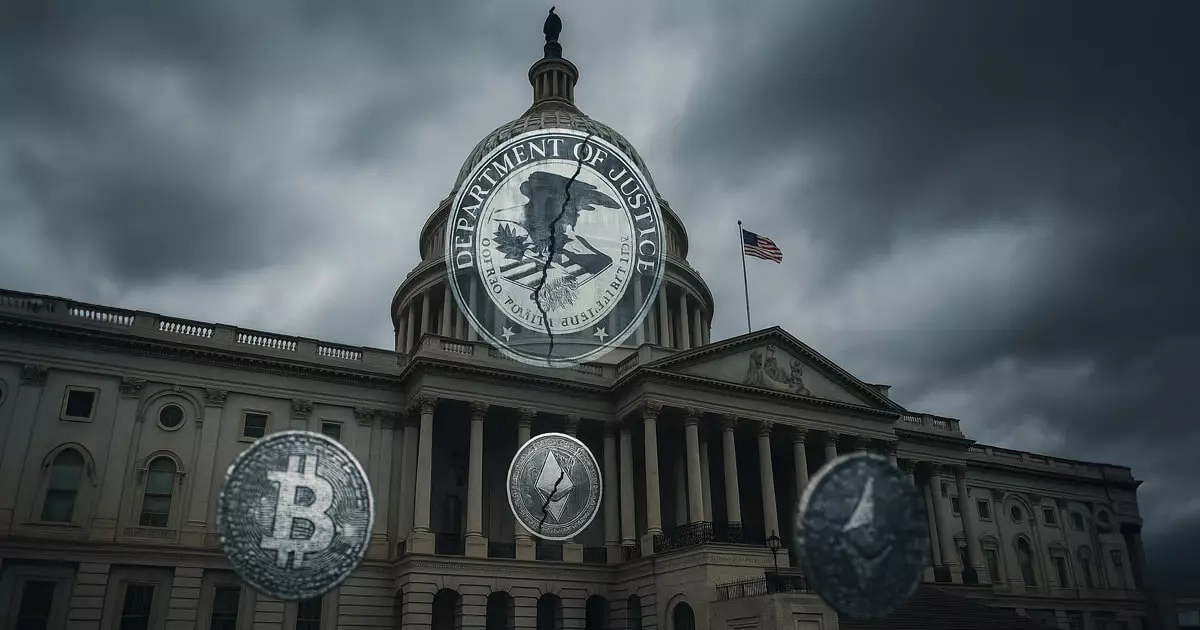In a shocking decision, the Department of Justice (DOJ) recently announced the dissolution of the National Cryptocurrency Enforcement Team (NCET), a specialized unit aimed at combating the rising tide of criminal activity in the digital asset sector. This alarming choice, spearheaded by Deputy Attorney General Todd Blanche, has sparked outrage among a group of prominent Democratic lawmakers, particularly Senator Elizabeth Warren, who argue that this dismantling marks a grave error in the war against crypto-based crimes. The NCET was tasked with targeting serious offenses linked to digital assets, conducting high-stakes crackdowns on operations like Tornado Cash and intricate cybercriminal networks associated with North Korea.
A Shift in Focus: Targeting Individuals vs. Industries
The DOJ has claimed that the decision to disband NCET is a strategic pivot, suggesting that law enforcement ought to focus on prosecuting individual offenders rather than treating the entire cryptocurrency industry as a threat. However, this rationale is dangerously flawed. By sidelining a dedicated team that provided essential resources and expertise to local and state authorities, the DOJ risks fragmenting the fight against sophisticated crypto crime. The lack of federal support effectively weakens enforcement mechanisms responsible for addressing serious offenses like drug trafficking and sanctions evasion. When lawmakers state that the disbandment poses “grave mistakes,” they highlight the real concern that without a unified front against these growing threats, society as a whole will bear the consequences.
Surging Crypto Fraud: A Call to Arms for Enforcement
The urgency of the situation is backed by unmistakable data: FBI figures indicated a staggering $5.6 billion loss to crypto fraud in 2023—a chilling 45% increase from the previous year. Opponents of the DOJ’s decision contend that such alarming trends necessitate a robust and specialized unit, not the other way around. The implications of a diminishing federal presence in crypto regulation are profound; as opportunistic criminals refine their methods, the risk to the public escalates. The rationale for paring down resources in the face of an apparent surge in crime calls into question the motivations driving the DOJ’s abrupt policy shift.
Political Ramifications: The Influence of Lobbying and Public Perception
Furthermore, lawmakers have hinted at the possibility of political influences impacting the DOJ’s strategic decisions. With former President Donald Trump’s involvement in various crypto ventures, one cannot ignore the potential for conflicts of interest that compromise the integrity of law enforcement agencies. This raises an unsettling question: Are these political undercurrents dictating how law enforcement approaches the deeply complex landscape of crypto crime? Such speculation casts a long shadow over what should be a straightforward battle against illicit finance—not an arena for political maneuvering.
The Community’s Outcry: A Unified Voice for Change
As public outcry mounts, lawmakers are demanding clarity, calling for an in-depth briefing by May 1, 2025, to clarify the motivations behind the NCET’s disbandment. In a world that increasingly relies on digital transactions, it is crucial that we don’t sacrifice safety for a misguided notion of regulatory simplicity. The specialized expertise provided by units like the NCET is not merely beneficial; it is indispensable. Without it, the DOJ sends a disheartening message: that the fight against cryptocurrencies’ nefarious applications is not a priority. In a polarized political climate, the need for focused, effective action transcends party lines, and it is time for law enforcement to recognize the serious ramifications of their decisions on public safety.


Leave a Reply